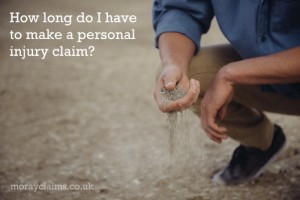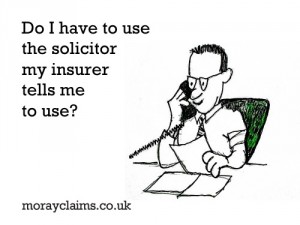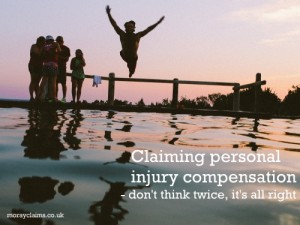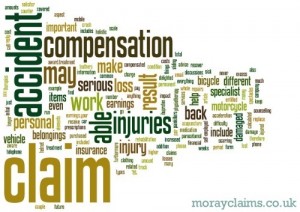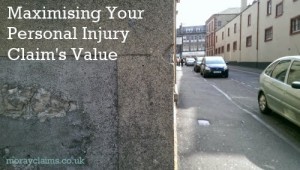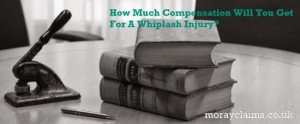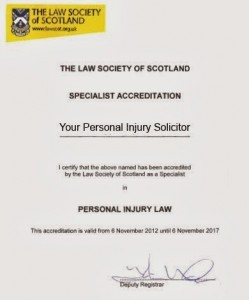I recently had to travel to a family funeral in Germany with my wife. We flew with KLM from Aberdeen to Cologne via Amsterdam. On the way there, we had one hour in Amsterdam Airport to catch our connecting flight. From previous experience, we knew this might be a problem. Schiphol is a sprawling airport. It is designed as a central hub with “spokes” going off from the centre and, on each spoke, there are up to 30 Gates. Gates with low numbers are close to the central hub and Gates with higher numbers are further out. On arrival at Amsterdam, we were on time. The aircraft’s parking stance was at Gate C18 and we understood we had to get to Gate D4. “C” and “D” are two different spokes, so we would have to get from one Gate to the other via the hub. When we checked the departure boards, we found that the departure Gate had been changed to D28. Travelator walkways on the spokes help to speed you on your way but, at the hub, we had to go through Security again and there Continue Reading
FAQs
Below are listed all of our articles covering Frequently-Asked Questions (FAQs) in relation to Personal Injury Claims in Scotland.
Should I Settle My Accident Injury Claim Directly With The Insurance Company?
If you have been hurt as the result of an accident, it is likely that the third party’s insurance company will contact you directly. You will probably have exchanged personal details with the other party to the accident and that information will be passed on to the other insurers if the accident is reported to them by their customer. Insurers have recognised this as a great opportunity to “get in first”. Where the insurance company for the other party sees that the accident is likely to be the fault of their insured, if they move swiftly, they can get to you before you are in touch with your own insurers. The “prize” as far as they are concerned is the chance to offer money to settle any personal injury claim you might have - before you have had time to get proper legal advice and intimate the claim. Third party capture There are different terms for this procedure, depending on your point of view. Solicitors who represent the interests of injury victims refer to it as Continue Reading
Do I Have To Use The Solicitor My Insurer Tells Me To Use?
We have blogged previously about Legal Expenses Insurance (LEI). If you have LEI and approach your insurer for cover under the policy to make, for example, a personal injury claim, you may find the insurance company saying that they have the right to appoint a solicitor of their choice to act for you. We often get asked the question: "Do I have to use the solicitor my insurer tells me to use?" The true position is that you do not have to go with their choice. Right to appoint own solicitor for proceedings It’s not entirely simple but under Regulations dating from 1990 (the Insurance Companies (Legal Expenses Insurance) Regulations) you have the right to select the solicitor who will be appointed in respect of any proceedings. Of course, the normal procedure with a claim is that your solicitor will intimate it by letter first of all and, in many cases, the claim can be negotiated to a successful conclusion without the need for a court action – in other words, without the Continue Reading
Claiming Personal Injury Compensation – Don’t Think Twice, It’s All Right
There are so many factors to discourage you from making a personal injury claim these days. The Westminster Government almost seem to be trying to outlaw claims for whiplash injury and there is a constant undercurrent of suggestion that such claimants are fraudsters or at least exaggerating their symptoms. So, if you are thinking of claiming personal injury compensation following an accident, should you do so? An unattractive “entitlement” mentality Most of us find it difficult to warm to people who claim entitlement to positions or privileges just because of who they are or what they may claim to have done in the past. But legal entitlements are different Fair enough, the legal entitlement to personal injury compensation, where the injury is caused by the negligence of another, is not a "deserving cause" in everyone's eyes. Usually, these doubters are folk who have never been in the position of an injury victim themselves. It is different when you are the victim. Personal injury Continue Reading
What Can I Claim Personal Injury Compensation For?
The answer to the question "What can I claim personal injury compensation for?" is something which is bound to influence you in deciding whether or not it is even worth your while bothering with a claim at all. If you are injured in an accident and need to make a claim for compensation, there are various possible elements which can make up your claim as a whole. We tend to refer to these as “heads of claim”. Also note that, in this context, “damages” is another word for “compensation”. The way to think about it is that any loss you have suffered as a result of your accident can probably be compensated. Here is a list of some of the most common elements found in personal injury claims. Your pain and suffering The level of compensation you get for your injuries is calculated on a sliding scale. So, the more serious and long-lasting your injuries, the greater the amount of compensation you will receive. Multiple injuries will increase the value of the claim here, though Continue Reading
Maximising Your Personal Injury Claim’s Value
North Street, Elgin, Moray Your personal injury claim is primarily about money. It’s true that other aims are possible - and often more important than just the compensation. One example is maximising your level of recovery from injuries through rehabilitation provided as part of your claim. Another possible driver is “trying to make a point” so the negligent party takes notice and changes their practice for the future, reducing the chances someone else will be injured in the way you were. It's all about money But personal injury claims are really about financial compensation. The law tries to put you, as the injured person, back in the position you would have been if the accident had not happened – so far as that is possible in money terms. Given the emphasis on money, the aim is to maximise your damages. What are the main factors which have a bearing on how much money you receive (if any) at the end of your claim? Factor 1: Whether your claim succeeds at Continue Reading
How much compensation will you get for a whiplash injury?
Photograph: "Spines" by Nicky Mack Whiplash injuries to the upper spine can range widely in severity. From neck stiffness lasting for a day or two, the symptoms can extend to pain and restriction of movement which persists for months or even years. We have posted on this Blog previously about the “classic” whiplash accident mechanism – usually a road traffic accident involving a rear end shunt. Whiplash remains a controversial injury, which has become a bit of a political football. Because there are no physical signs associated with whiplash symptoms – such as would show up on x-rays or other scans – exaggeration and fabrication of claims is always a possibility. Likely claim value is a factor in deciding whether a claim is worth it or not If you are considering making a whiplash claim, you will be wondering how much your claim is going to be worth. It is reasonable to consider this, as you will want to weigh up whether it is going to be worth the time and Continue Reading
Why An APIL Solicitor Is Best To Handle Your Personal Injury Claim
Peter Brash, Grigor & Young, APIL Senior Litigator Not every solicitor handles personal injury claims but, more importantly, not every solicitor who handles personal injury claims is a specialist. In previous posts, we have explained why you need a specialist personal injury solicitor, preferably local to you, to handle your claim for you; and how the Law Society of Scotland’s Accreditation scheme is one badge of recognition of skills beyond the ordinary in particular areas of law, such as personal injury. How else can you tell whether a solicitor is going to be up to the task of handling your claim? Membership of the Association of Personal Injury Lawyers (APIL) APIL is a not-for-profit organisation set up over 20 years ago to encourage accident prevention and assist accident victims through campaigns and lobbying. It has over 4,300 members, most of whom are UK-based solicitors. APIL’s headquarters are in Nottingham. The culture of the Continue Reading
When Do You Need A Personal Injury Solicitor In Scotland (rather than elsewhere in the UK)?
Accidents do not take any notice of national boundaries. An accident can happen whether you are in Dallas, Moray, or Dallas, Texas. If you have been injured in an accident and need to make a claim for compensation, we recommend that you contact a solicitor with proven specialist knowledge in personal injury claims. We also suggest that you should deal with a solicitor who is local to you, if possible. For accidents which have happened in Scotland, does it matter whether your solicitor is in Scotland? It does matter and we will explain why. When a local-to-you solicitor can be a bad idea Where you suffer injury in a road traffic accident in Scotland, you might be on holiday or on business at the time. You may have your home in another part of the UK. It can be tempting in that situation to consult a solicitor close to where you live, once you are sufficiently recovered, because it is the most convenient option. The solicitor you consult will be reluctant to Continue Reading
How To Choose a Personal Injury Solicitor in Scotland
In another article, we saw how proven specialist knowledge in a particular area of law is probably the most important factor when you are looking to get help from a solicitor - assuming you do not already have a solicitor or a good recommendation from a close friend or relative. In this article, we discuss how best to go about choosing a personal injury solicitor in Scotland. How to establish a solicitor's 'proven specialist knowledge' in relation to personal injury claims If you have been injured in an accident and need to make a personal injury claim in Scotland, how do you go about finding a solicitor with the necessary specialist knowledge? Lots of solicitors' firms - and others who are not solicitors - claim to have the necessary experience and expertise to handle your compensation claim, so what you need is an independent benchmark of excellence to give you confidence that you are trusting your claim to a safe pair of hands. Law Society of Scotland specialist Continue Reading
Accident Claims: Choose Your Solicitor (rather than having one forced upon you)
We are often contacted in situations where you, as the injured person, have been in touch with your insurers following an accident and they have recommended particular solicitors to you to deal with your claim. Situations where insurers recommend particular solicitors The types of insurance scenarios here include cover under motor insurance, house insurance and legal expenses insurance. It seems to be regularly the case that you will be left with the feeling from your discussion with your insurer that you have “no choice” but to go along with what they suggest. The solicitor is effectively appointed for you. They will probably not be local to you. You can choose your solicitor In truth, you do have a choice. First of all, you need to understand that many insurers have commercial relationships with the solicitors they recommend or appoint. The firms in question are often large and will delegate the bulk of the work on your case to non-solicitors. Secondly, as a Continue Reading
The Best Way to Find a Solicitor in Scotland
The best way to find a solicitor in Scotland? Check for proven specialist knowledge If you think you need a solicitor and you do not either have one already or manage to get recommendations from relatives or friends, the likelihood is that you will do an internet search to find a suitable solicitor. That was the main finding of research carried out by the German equivalent of Which? Magazine (Stiftung Warentest) and published in its March 2013 edition. And it's not an unexpected result. The Proportion of People Searching the Internet for a Solicitor What is perhaps surprising is that internet search came quite a distant third (behind “have a solicitor already” and “ask a trusted person to suggest a good solicitor”) with only 15% of respondents giving that as their main research method. On the other hand, you are probably carrying out an online search if you are reading this … The Top Criterion in Choosing a Solicitor – Proven Specialist Knowledge The survey also Continue Reading
